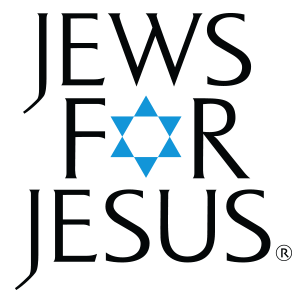When I read Maccabees, I was surprised to find that the values of our tolerant and inclusive modern Judaism are notably absent from this ancient story. What do we do with this? How do we celebrate Hanukkah without celebrating everything about the Maccabees? It’s easy to simply cancel something uncomfortable in history, but it is both harder and more important to learn from our ancestors—both from their virtues and their faults. Thankfully, we’re not the first generation of Jewish people to wrestle with this.
Read MoreA common Hebrew phrase connected with Hanukkah is “nes gadol haya sham,” which means, “A great miracle happened there.” But did you know that without Hanukkah, we would not have Christmas? Two miracles plus a common theme link Hanukkah and Christmas in a way I hope will heighten your appreciation of both.
Read MoreThe shammash is more than just a candle, it is the servant light by which all the other candles of Hanukkah receive their light. Because of this, its meaning is transcendent, provoking reflection on the beauty of its light and the meaning of its purpose. That meaning points beyond the simple candle to a special person.
Read MoreWe've been a bit controversial in the Jewish community. What do we actually do?
Read MoreBecause of your involvement and engagement, whether only one time in the past or with greater regularity, our missionaries and staff have had the capacity to witness for Jesus and to lead many to Him.
Read MoreThanks to those of you who pray, we are empowered AND Tessa and Laura came through to honour and obey the Lord in this public declaration of their faith. The ladies are grateful and so are we!
Read MoreThe Jesus Genealogy: What’s the point? Five Devotionals by Bob Mendelsohn exploring the genealogy of Jesus.
Read MoreMoses chose not to reveal that he was a Hebrew. He actively identified as an Egyptian, and that’s how he would have gone down in history if God had not intervened. In the Hebrew Scriptures, the textbook for Jewish identity, the definition of that identity always comes from God.
Read MoreLife is filled with clues about God, and we all long for something beyond the ordinary. But what does seeking God in my life really mean?
Read MoreWhen God in the Hebrew Scriptures refers to the Jewish people as chosen, he's saying that he selected them to serve a specific purpose and to carry out a particular task. So what is it we were set apart to do?
Read MoreThere are many misconceptions about Messianic Jews and what they believe. This article addresses the strong Jewish history of Messianic Jews and explains their faith.
Read MoreYakov left his Haredi (ultra-Orthodox) community more than a decade ago. He had broken the Sabbath, his parents tried to discipline him by not speaking to him ... and he just wasn’t satisfied with life at the yeshiva (Orthodox religious school). He was an 18-year-old in search of an alternative. Eventually, Yakov turned up on the Jews for Jesus website and responded to our LiveChat invitation.
Read MoreAfter the event, I was speaking with each of the Jewish people who were not yet believers who attended. One said, “Can you have more of these gatherings? They are so special to me.” Another said, “I think I now believe in Jesus. What’s next?”
Read MoreWe have been writing you the last couple of weeks to tell you about the 10 Days, about Rosh Hashanah and Yom Kippur, and briefly mentioned the 7 appointments with the Lord. (Leviticus 23) The final one listed is named the Feast of Tabernacles and is the culmination of God’s appointment book with his people, and with us!
Read MoreYom Kippur is celebrated on the 10th of the month of Tishri. And maybe ‘celebrate’ isn’t the right word. You see it’s the holiest day in the Jewish calendar, the day of Atonement, making right with the God of the universe after a year’s worth of not exactly living as holy as he requires.
Read MoreRosh Hashanah actually translates to the idiom “New Year” or literally “Head of the Year.” What’s true about that is that 5,784 years ago, God created the world. And thus Rosh Hashanah celebrates or is the anniversary of the Creation of the world.
Read MoreThe 10 days between those two major days are nicknamed the “Aseret Y’mei T’shuva” or the “10 days of awe (or repentance)” We are encouraged and taught to make right with God and with our neighbour.
Read MoreRecently a Jewish man, Adrien, stopped at the table, took a tract, and was struck by it. When Idir shared the gospel with him, Adrien told him, “I’m Jewish, so this is not for me.” Idir replied, “That’s great! I have Jewish friends who believe in Jesus. Would you like to meet them?”
Read MorePsalm 91 offers two beautifully poetic Hebrew words to convey the richness of abiding in God. Yoshev, which means “to dwell,” and implies a place of permanence, and Yitlonan, which means “to abide.” The first word speaks of that sense of security we feel in our homes. I call it nesting. You know, that sense of relief you feel when you come home and unpack after a long trip. The familiar surroundings create a welcoming sense of comfort and contentment.
Read MoreJesus' conversation with the Canaanite woman in Matthew 15 seems very harsh. A closer look at this text not only sheds light on the story, but reveals its hidden beauty.
Read More



















